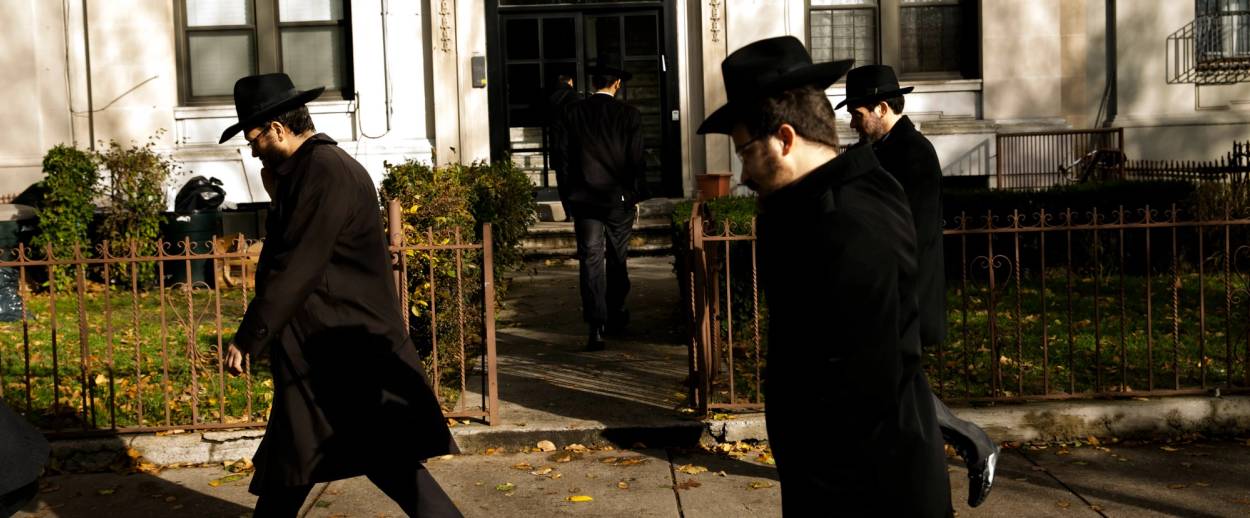Arrests but No Hate-Crime Charges After Jewish Teen Beaten by Mob in New York City
Chants of ‘Kill the Jew,’ according to witnesses




Two teenagers have been arrested after a 16-year-old Jewish boy was beaten on Nov. 27 in Forest Hills, Queens, by around 20 teens, according to witnesses. Jonathan Torres, 18, and another 17-year-old male, were arrested Thursday and charged with first-degree felony gang assault and second-degree felony assault. Neither alleged attacker has been charged with a hate crime despite some witnesses claiming there were chants of “Kill the Jew” during the attack.
“It’s not a hate crime, and the victim is in stable condition,” an NYPD spokesperson said Thursday. Yaniv Meirov, who runs Chazaq, an organization that serves the local Bukharian Jews, said it was “100 percent in my opinion a hate crime.” There are conflicting accounts of whether the victim, a student at a local Yeshiva, was wearing identifiably Jewish clothing at the time of the attack. He’s now reportedly in stable condition at Elmhurst Hospital, recovering from severe bruising and contusions.
Meirov said the attack happened after the victim left a kosher restaurant when 20-30 teenagers, chanting “Kill the Jew,” began punching and kicking him. A large group of onlookers surrounded the attackers, many recording it on their cellphones according to witnesses.
Things may have been even worse if not for the intervention of Waleska Mendez, who was volunteering at the Masbia soup kitchen at the time of the attack. After realizing what was going on, Mendez ran outside and confronted the mob with a broom. After chasing away the attackers, she was almost drawn into a scuffle with the onlookers who had responded to the attack by recording it. “One of them was trying to get on top of me,” Mendez told Gothamist. “I just throw the broom, and said ‘You want to fight? Let’s do it.’”
“I’m a citizen of New York for 28 years,” Mendez told New York’s WPIX 11 news channel. “We care about people, I care about people. You don’t think about who is the nationality or where they’re coming from. When something like that happens we have to do something about it.”
The latest attack comes amidst a surge of anti-Jewish violence targeting Orthodox communities in New York City. Perhaps because the crimes have largely not involved attackers who fit the profile of post-Trump, far-right anti-Semitism and because the victims have come from insular Haredi communities, they haven’t triggered a forceful response from the city’s political or cultural institutions.
As Tablet’s Armin Rosen reported several days ago, documenting another recent, unprovoked attack:
In the era of Donald Trump’s presidency, and particularly after the massacre at Pittsburgh’s Tree of Life synagogue in late October, Americans are supposed to be more sharply attuned to anti-Semitism and other resurgent bigotries, which represent a threat to both individual lives and the broader social fabric. Yet, even in heavily liberal and disproportionately Jewish New York, it’s far from apparent that anti-Semitism is actually being treated that way. There have been several recent attacks on Haredi Jews in Brooklyn which have gone generally ignored; those came just on the heels of an anti-Jewish arson spree that turned out to have been the responsibility of a former intern for the Democratic speaker of the New York City Council. In that perpetrator’s case, mental illness and addiction were again touted as explanations for actions that targeted only Jews and were committed by an individual with a long public record of making conspiratorial anti-Semitic statements.
Tablet’s afternoon newsletter edited by Jacob Siegel and Park MacDougald.